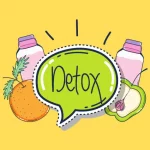
Substance dependency is something that can never be easily broken. Some individuals seek to stop smoking independently, but sometimes the body and the mind need more formal and professional attention. Safe detoxing takes more than just a firm will; it needs the proper environment, physician treatment, and a sense of emotional support. Being able to identify when you are at that level of assistance may mean the difference between a dangerous withdrawal and a long-lasting recovery.
The following are five obvious indicators that it is time to seek professional detox support, and the reasons why early intervention can save your health, as well as your future.
1. Withdrawal Symptoms Feel Unmanageable
The severity of withdrawal symptoms is one of the most telling signs that detox can not be addressed as an isolated case. Once the body is physically addicted to something, its mechanisms adapt to work with the given chemical in the body. The aim is not just to assist the body to adjust safely but also to avoid the relapse that is likely to happen when the symptoms get too overwhelming to handle alone.
2. Attempts to Quit Keep Failing
It takes most individuals several attempts to quit using substances, only to discover that they cannot do it on their own. Relapse is not the end of the world–it is often a marker that physical desires and emotional stimuli are too strong to overcome without assistance. Once making the same mistake by going cold turkey again, there is an indication that formal help might be the difference.
Detox centers run by professionals are not only medical attempts at stabilization, but also therapy to help free the psychological aspect of dependency. This strategy may assist people in learning about their triggers, building up coping strategies, and planning to continue treatment after detox. The assistance at this point tends to avoid the relapses and backsliding of the quitting process that can diminish self-confidence and health.
3. Substance Use Affects Physical or Mental Health

Drug use does not simply modulate behavior; it also modulates the way the bodily and neural systems work.
Medical detox programs analyze the complete picture of an individual’s health and then start treatment. They can customize care plans to treat the current conditions, reduce risks, and promote the natural healing process in the body. This is a high degree of individualized treatment that can hardly be achieved at home. It makes certain that detox is not simply the question of elimination of the substance- it is the question of bringing well-being back.
4. Drug Abuse Is Straining Relations and Responsibilities
The other indicator that someone might require detox support is the fact that the use of substances starts to cause harm to significant elements of life, such as family relationships, work, or social relationships.
Once the loop of use begins to take precedence over duties or principles, it becomes hard to come out without organized assistance. Quality residential treatment centers are essential in this case. They offer a substance-free, stress-free atmosphere, not in the day-to-day stressors, and individuals can commit maximum attention to healing. In such environments, clients are in constant care, counseling, and are educated to regain their self-discipline and confidence in their relationships.
5. Denial or Fear Is the Enemy Of Change
The fear of withdrawal or refusal to admit how serious a problem is can keep a person trapped for several years. It can seem like a loss of control, but in reality, it is the reverse of that; it is reclaiming control. Once the use of substances begins to take over decision-making, feelings, or habits, it is already in progress. The first step is to recognize it, and then it will start to recover.
Fear can be overcome with professional detox programs that offer a nonjudgmental and compassionate approach. This eliminates confusion on the part of the medical personnel as each part of the process is explained. Mental health professionals and clients collaborate in solving the problems they might be facing, including trauma or stress, which could have led to dependence.
Conclusion
The ability to understand when professional detox help is necessary can be a life-changing move. Weakness is not indicated by withdrawal, relapse cycles, declining health, damaged relationships, and fear–they are indicators that help is necessary. Under safe care, the detox process is safer, more manageable, and more likely to result in permanent recovery.
Photo Credit:
Photo 1, Credit to Freepik || Photo 2, Credit to Freepik (CC0 1.0)




